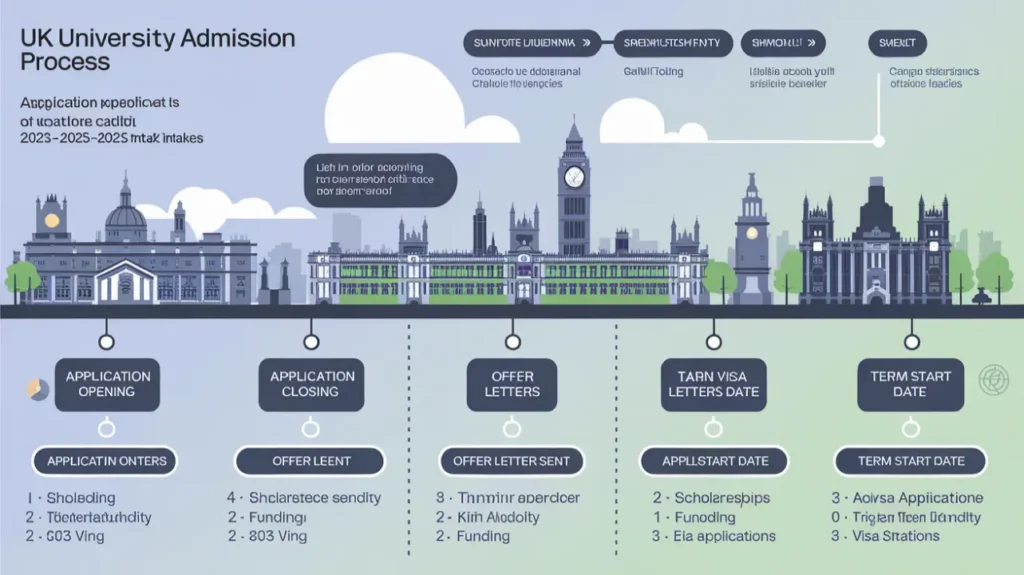
UK University Admission Timeline: Key Dates for 2025-2026 Intakes
Introduction
Navigating the UK university admission process can be complex, especially for international students. Understanding key dates and deadlines is crucial to ensure a smooth application experience. This blog aims to guide students through the 2025-2026 UK university admission timeline, helping them plan their applications effectively.
The Universities and Colleges Admissions Service (UCAS) regulates the entire UK process for university admission to undergraduate programs. Students submit their postgraduate course applications directly to the universities. The application process comprises four essential steps: researching courses, making application materials, and then submitting applications before obtaining acceptance offers.
International students must pay close attention to essential dates because their arrival includes visa preparation and finding appropriate accommodation. Students who miss important deadlines risk being deferred from their admission or finding themselves without course options. Follow-up with application time limits is vital because proper preparation needs to happen on time.
This blog will outline the critical dates for the 2025-2026 intakes, providing a comprehensive guide to help international students navigate the UK university admission process successfully.
Understanding UK University Intakes
Understanding the various university intakes in the UK is essential for international students planning their academic journey. The UK primarily offers three intakes: September/Autumn, January/Winter, and May/Spring. Each intake has distinct characteristics, advantages, and considerations.
1. September/Autumn Intake
- Overview: The September intake is the primary and most popular intake among UK universities, aligning with the start of the academic year.
- Benefits for International Students:
- Wider Course Selection: A vast array of undergraduate and postgraduate programs are available.
- Comprehensive Orientation: Universities offer extensive orientation programs and support services to help international students acclimate.
- Vibrant Campus Life: Starting with the majority of students fosters a lively and engaging campus environment.
2. January/Winter Intake
- Overview: The January intake serves as an alternative for students who missed the September intake, offering a selection of courses, though fewer than in the autumn.
- Benefits for International Students:
- Additional Preparation Time: Provides extra months to fulfill admission requirements and prepare for studies.
- Smaller Class Sizes: Potential for more personalized attention due to fewer students enrolling.
- Continuous Learning: Minimizes the waiting period for the next academic year, allowing for timely commencement of studies.
3. May/Spring Intake
- Overview: The May intake is the least common, with limited universities offering select programs during this period.
- Benefits for International Students:
- Tailored Timing: Suitable for students who need more time for application processes or other commitments.
- Focused Attention: Smaller cohorts may lead to more individualized support from faculty.
- Better Placement Opportunities: Graduating at a different time from the majority may provide a competitive edge in job markets.
Choosing the Right Intake
Selecting the appropriate intake depends on various factors, including course availability, personal readiness, and career objectives. International students should:
- Research Thoroughly: Investigate which universities and programs are available during each intake.
- Plan Ahead: Consider application deadlines, visa processing times, and financial arrangements.
- Seek Guidance: Consult university admissions offices or educational consultants for personalized advice.
Understanding these intakes and their respective benefits enables international students to make informed decisions, ensuring a smoother transition into the UK higher education system.